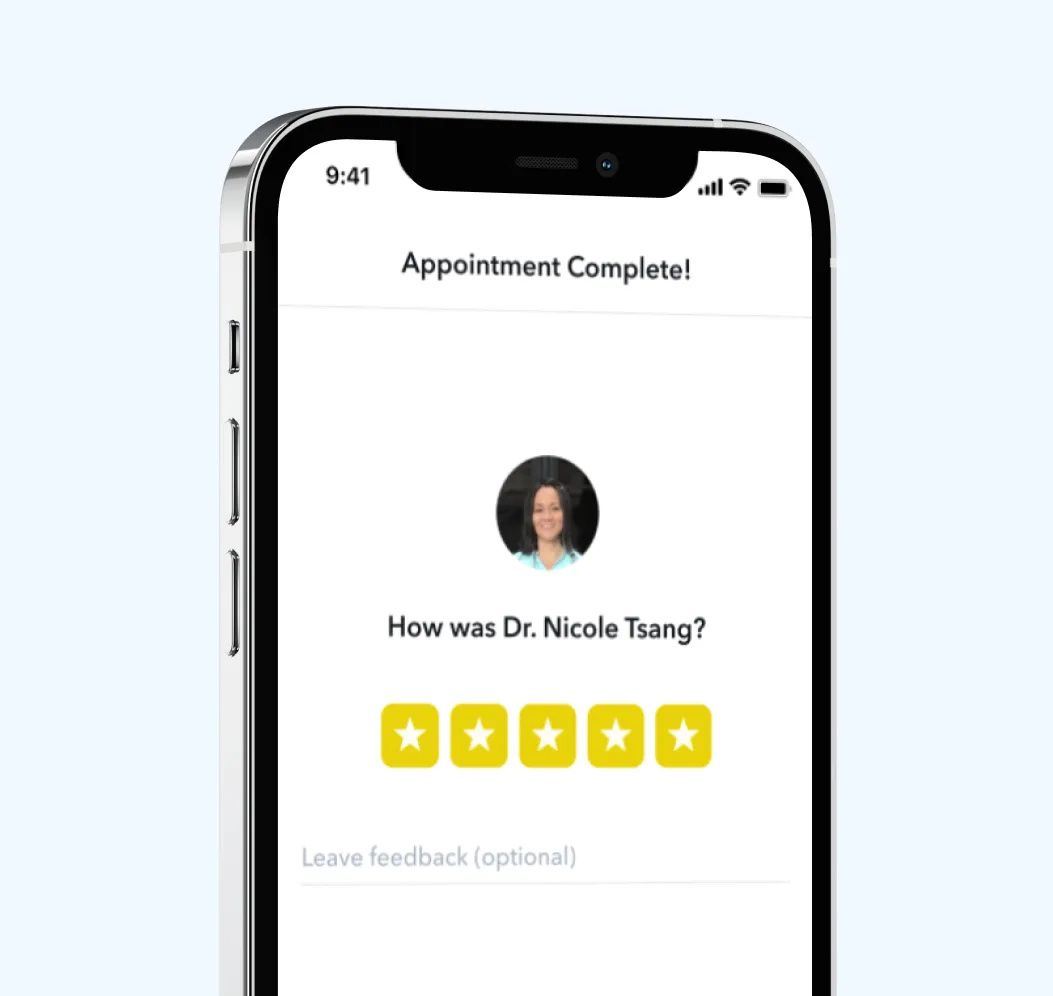All posts
Do Primary Care Doctors do Blood Work?

Circle Medical Staff
May 28, 2023
10 mins

Primary care doctors can provide a wide range of services for patients, but can they perform blood work? It's a common question people have when seeking care. The answer isn't as straightforward as you might think. While primary care doctors are capable of ordering blood work, it is usually decided on a case-by-case basis. By the end of this blog, you'll have a better understanding of when primary care doctors might order blood work and the types of tests they might request. Read on to learn more!
Understanding The Scope of Primary Care
Out of all the health care professionals you go to in your lifetime, a
primary care physician will typically offer the widest range of care. In a
sense, a primary care provider is more of a generalist, and they are trained
to provide preventative, diagnostic and treatment care to patients. In
short, they provide comprehensive care for individuals of all ages and
genders. Ideally, your primary care physician will be someone you see for
years and develop an ongoing relationship with, as this allows them to
better understand your individual health needs and goals and adjust your
care over time. When more specialized, focused care is required, your
primary care provider can also refer you to a specialist.
And to answer the question of the day - yes, primary care providers can also
order blood work. In addition to ordering it, primary care providers can also
help their patients interpret the results and make recommendations for further
testing if necessary.
Overall, primary care physicians are vital for maintaining overall health and
diagnosing potential health concerns. Establishing a relationship with a primary
care provider will help you receive more personalized care and stay on top of
your health.
How To Ask Your Doctor To Order Blood Panels
If your doctor thinks a blood panel is necessary to diagnose a condition they suspect is causing your health issues, they may recommend blood work themselves. However, you can also be your own advocate in the healthcare process and can ask your doctor to order blood panels. If you feel like blood work is necessary, don't hesitate to bring it up to your doctor. Here are some tips for approaching the conversation:
- Explain your reasoning - Let your primary care provider know the reasons you think you might need a blood panel ordered. Explain why you think it might help or what you think it might reveal.
- Ask about the tests - Once you've explained your symptoms or your reasoning for ordering blood work, ask your provider what tests they recommend and why. They may have some specific tests they want to run that you might not have considered.
- Get details - Now is also a good time to get details about the cost and insurance coverage for ordering a blood panel. Your doctor may be able to tell you about a more affordable alternative or let you know if they don't think it is necessary.
Overall, communication is key when it comes to getting the care you need. Don't hesitate to ask questions and voice your concerns. Your primary care provider is there to help you, and blood work is just one tool in the diagnostic process.
The Importance of Routine Blood Work in Diagnosis
Routine blood work is an important part of
preventative and diagnostic health care
. Outside of requesting a blood panel for specific symptoms and possible
conditions, your primary care provider may also recommend routine blood work
to catch conditions early and ensure that you're maintaining a good level of
health.
Routine blood work can typically be ordered during a physical or your regular
check-up. Blood panels check a wide variety of different conditions, including
high cholesterol, heart disease, diabetes, thyroid disease and more.
Blood tests can also be used to measure the efficacy of treatments. If you're
taking medication or following a treatment plan, routine blood work can ensure
your condition is improving and allow your doctor to adjust treatment as necessary
in response to your results.
Common Types of Blood Work Ordered by Primary Care Providers
There are several different types of blood tests that your doctor may order, depending on your age, health history and overall health. Commonly, these are the blood panels that your primary care provider might order:
Complete blood count (CBC) - A complete blood count panel is a routine test that gives primary care providers a wide range of information about your health. It can provide doctors with a good overall picture or help them diagnose a specific condition. This test will include measurements for:
- Red blood cell count
- White blood cell count
- Platelet count
- Hematocrit test
- Hemoglobin test
- Mean corpuscular volume
Basal metabolic panel (BMP) - A basal metabolic panel is another common routine test. The BMP measures the chemicals in your blood. Here are some of the tests you can expect with a basal metabolic panel:
- Fasting glucose
- Electrolytes
- Kidney function
- Carbon dioxide level
By understanding the types of blood work ordered by primary care providers, you can better understand what to expect during your doctor's appointment and why it's important to have routine blood panels done.
Utilizing Telemedicine
More than ever, individuals are taking their health into their own hands and
choosing primary care provider options that give them more flexibility. The
telemedicine industry has grown in recent years and allows patients to get
all the services they expect from primary care from the comfort of their
homes.
Instead of spending long hours at the doctor's office, traveling to clinics and
sitting in waiting rooms, you can speak to primary care providers directly through
apps from providers like Circle Medical. Even if you need blood work, your telehealth
primary care provider can order it from a nearby lab. This way, you can just
go to the nearest lab to get your blood tests done instead of jumping through
the hoops of getting a doctor's appointment just to ask about blood work.
Once you get your blood panels back, your telehealth provider can discuss your
results with you through video. No need to head to the doctor again just to discuss
your results. This option has made it much easier for people to get their primary
care needs met without having to worry about all the inconveniences that come
with in-person care.
Reading Your Results
As mentioned, after you've completed your blood work, your primary care
provider will review your results with you. It's important to understand
what these results mean so you can work together to address any issues that
may arise.
Your blood panel will typically show several important values, such as white
blood cell count, red blood cell count, cholesterol levels, platelet count and
more. Your provider will help you interpret these values and discuss any potential
concerns or abnormalities. If needed, they may recommend follow-up tests or refer
you to a specialist depending on your results.
Getting Referrals to Specialists
If your primary care provider determines you need to see a specialist, they
will provide you with their recommendation for a referral. A specialist will
be able to provide further testing, evaluation or treatment for specific
conditions.
It's important to understand that a referral to a specialist doesn't mean your
primary care doctor is unable to provide you with adequate care. Rather, it's
a way to ensure you receive the best possible treatment and expertise for your
specific health needs.
Your primary care doctor may refer you to a specialist for a variety of reasons,
including:
- Suspected cancer or other serious illnesses
- Chronic pain or inflammation
- Heart or lung conditions
- Gastrointestinal problems
- Hormonal imbalances
Talk to a Telehealth Provider Today
If you're interested in receiving your primary care services from home, then a telehealth provider is your solution. Rather than driving to in-person clinics or waiting weeks for an appointment, a telehealth provider makes it easy to talk to a primary care provider over video. If you're looking for a comprehensive primary care provider to make care more convenient, choose Circle Medical.
Get Treatment with Circle Medical
Circle Medical is here to make quality primary care more accessible. Our primary care providers can meet with you same-day to provide health advice, diagnoses, treatment plans, specialist referrals and prescriptions when medically appropriate. Make your same-day online appointment with a Circle Medical provider today!
Circle Medical Providers must meet all of the following standards:
-
Exceptionally qualified in their field
-
Board-certified
-
Deeply empathetic for patients
-
Follows evidence-based care guidelines
-
Embracing of diverse patient backgrounds
-
Impeccable record of previous care
400+ Primary Care Providers.
100% Confidence.
No matter which Provider you choose, you will be seen by a clinician who cares deeply about your health and wants to help you live your happiest, healthiest life.
Circle Medical Providers are held to an exceptionally high standard of compassionate, evidence-based care.
Book Appointment


